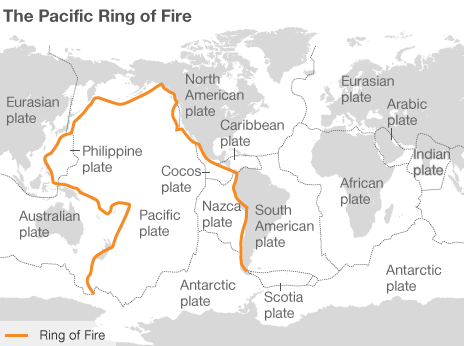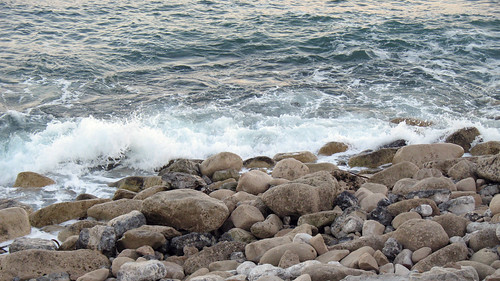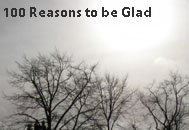In the wake of the devastation that has been caused by the earthquake off the coast of Japan and the ensuing tsunami, experts have advised that Japan’s coastline may have shifted as much as 13ft to the east.
From BBC Science reporter Paul Rincon:
Japan’s coastline may have shifted by as much as 4m (13ft) to the east following Friday’s 8.9 Magnitude earthquake, according to experts.
Data from the country’s Geonet network of around 1,200 GPS monitoring stations suggest a large displacement following the massive quake.
Dr Roger Musson from the British Geological Survey (BGS) told BBC News the movement observed following the quake was “in line with what you get when you have an earthquake this big”.
The quake probably shifted Earth on its axis by about 6.5 inches (16.5cm) and caused the planet to rotate somewhat faster, shortening the length of the day by about 1.8 millionths of a second.
Japan’s meteorological agency has proposed updating the magnitude of the earthquake to 9.0.
This would make it the joint fifth biggest quake since instrumental records began, but other agencies have not yet followed suit.
Japan lies on the infamous “Ring of Fire”, the line of frequent quakes and volcanic eruptions that encircles virtually the entire Pacific Rim.
The dense rock making up the Pacific Ocean’s floor is being pulled down (subducted) underneath Japan as it moves westwards towards Eurasia.
Dr Brian Baptie, also from the BGS, explained that the quake occurred on the subduction zone along two tectonic plates, the Pacific plate to the east and another plate to the west, which many geologists regard as a continuation of the North American plate.
As the Pacific plate moves westwards underneath Japan, it drags the North American plate downwards and westwards with it.
As an earthquake occurs, the upper plate lurches upwards and eastwards, releasing strain built up as the two plates grind against one another.
In the most recent case, this movement gave a kick to the seabed, displacing a large amount of water and leading to the tsunami waves which devastated coastal areas in the Sendai region.
“The Pacific plate has moved a maximum of 20m westwards, but the amount of movement will vary even within the fault,” said Dr Musson.
“That doesn’t mean the whole country has shifted by that amount because the actual displacement will decay further from the fault.”
Geonet is operated by Japan’s Geographical Survey Institute (GSI). Work on the array began in 1993, and it has now grown into the largest GPS network in the world, according to the GSI.
Its data show a movement eastwards of up to 4m in coastal areas of Japan.
Dr Ken Hudnut, a geophysicist at the US Geological Survey (USGS) in Pasadena, California, told MSNBC that information resources linking GPS readings to maps, such as driving directions and property records, would have to be changed as a result of the shift.
“Their national network for property boundary definitions has been warped,” he explained. “For ships, the nautical charts will need revision due to changed water depths, too (of about 3ft). Much of the coastline dropped by a few feet, too, we gather.”
Paul.Rincon-INTERNET@bbc.co.uk
Christopher Lloyd in his weekly Wallbook post reflects on the US president’s statement that these events remind us of how fragile we are as a species:
Although that’s right, it shouldn’t take disasters like the unfolding trauma in Japan to remind us of our vulnerability. Every hill and mountain top, every cliff edge – all the land we live on ultimately only exists because of the countless catastrophes stimulated by plate tectonics that causes the earth to buckle, split and rotate endlessly around the globe over eons of time.
Chris illustrates his post with a graphic that represents the giant tsunami that was partially responsible for the demise of dinosaurs:
A giant six-mile wide meteorite travelling at 17,000 miles per hour is thought to have been the cause. Just imagine what gargantuan tidal waves (sorry tsunamis) must have occurred after its impact in the ocean, somewhere near the Gulf of Mexico. Recent tsunamis, be they Indonesian or Japanese, would have been the merest ripples by comparison.
Those land-hugging dinosaurs not vaporised by the impact would have been drowned by a tsunami. Those living on the other side of the world would have been less fortunate. They would most likely have suffered a longer trauma before inevitable death as dust in the upper atmosphere blocked out the sun, perhaps for as long as a year – the ultimate power-cut.
Humanity was almost made victim of a different natural disaster, long before the first civilisations emerged. When the Toba super-volcano in Sumatra erupted c. 70,000 years ago it was the most powerful natural disaster to have stuck in 25 million years. On the other side of the world populations of our human species, Homo sapiens, are thought to have dwindled to a few as 2,000 as a result – the tiniest of genetic bottlenecks through which the 7 billion of us alive now are all beneficiaries.
Chris then goes on to say:
The Japanese will pick themselves up, I have no doubt. They did so following the traumas of World War II – as did Germany – becoming one of the most efficient, economically productive nations on Earth, driven by the part competitive, part collaborative human spirit of striving to rebuild and renew.
Even-so for a world leader to have to remind us how fragile we are as a species – past, present or future – sounds to me like another failure of education. Big history constantly tells us how vulnerable we are – how totally shaped our form and culture is by the natural world.
The full post called ‘Waves of Destruction’ can be found here.










The thing is, Cherie, all of life is both fragile and resiliant. We live both sides of the coin every day, if we’re lucky…with balance and moderation. How many times in my own life have I seen the phoenix rise from the ashes! It will happen again and again, everywhere.
That is so true Ginnie
There is too much all within a short space of time and equally, there are the means to do it. If their weren’t these overt and covert agendas so ready to jump in and capitalize, one could just accept it being put down to nature’s vicissitudes.
Yes and now people are focused on what is happening with the reactor and other things that are going will be missed. I fear we are at a dangerous cross roads.
It is so hard to comprehend all the destruction and what those people are facing now and in the future.
It is quite shocking isn’t it. Whenever I read about it, it makes me go cold to the bone.
What the earth can unleash puts our own power into perspective. I hope that Japan can recover quickly from this disaster
I am very worried about the Japanese people.
Karma is not a personal thing – it applies to groups, to states, to countries, to nations and to continents. But will the lessons be learned?…
That is very true. Sad to say but on the whole lessons don’t seem to be learned and the same mistakes are repeated.
This was a very good presentation Cherie….i enjoyed it very much…. it is important for man to know that what we make here never really leaves it simply takes on another form……good or bad…..
Our Earth is most resilient as are so many of the humans that share it….peter:)
Thank you Peter
Earth is very resilient and always springs back as to humans, yes I guess on the whole they do too.
Once again, in the face of great adversity, we see the courage and nobility of the Japanese. The dedication of plant workers refusing to leave their posts is the ultimate self discipline and sacrifice. My thoughts are with them all.
Every time I read about what is happening I go cold all over.
I believe the plant workers have sacrificed their lives to try and save others. My thoughts are with them and also the other people who’s lives have been affected by the tragedy in the area.
Goodness, I had no idea it had done that. Terrifying.
To us it seems quite alarming but the Japanese are quite used to the effects of earthquakes. As a general rule they take them in their stride because they are frequent occurrences in that region.
The thing that is different this time is the problem with the damage to the Nuclear Power Plant which adds in an unfamiliar dimension to the situation.
Both Britain and Malaysia are very lucky.
We don’t have any earthquakes, typhoons, volcanoes, etc.
But Malaysia is actually luckier than Britain.
Because our country is located right outside the Ring of Fire.
Our neighbouring countries like Indonesia, the Philippines get the earthquakes and volcanoes.
Pacific typhoons are blocked by the Philippines; Storms from the Indian Ocean by Indonesia.
I can’t imagine what it would be like to live in an earthquake zone. I do remember earthquakes here, but they were nothing in comparison to even a normal scale earthquake in Japan.